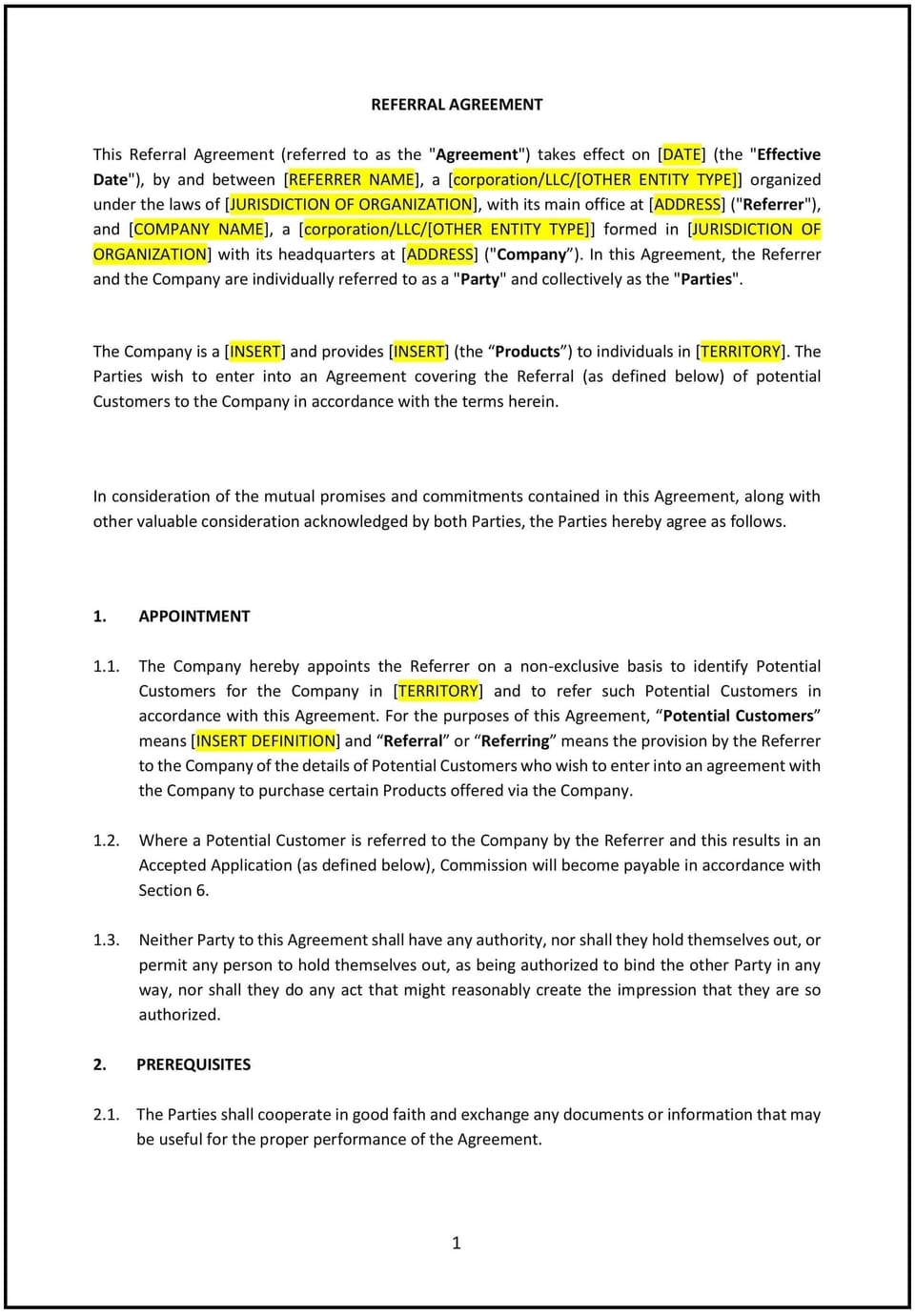Referral Agreement (Arizona): Free template

Referral Agreement (Arizona)
A Referral Agreement in Arizona is a contract between a business and a referrer that outlines the terms under which referrals will be made and compensated. This agreement ensures clarity on referral fees, payment schedules, and obligations, reducing potential disputes. It is commonly used in industries such as real estate, consulting, and sales, where businesses rely on third-party referrals to acquire clients.
Businesses in Arizona use this agreement to formalize referral relationships, incentivize lead generation, and establish clear expectations regarding compensation and performance. It helps protect both parties by defining the referral process, payment terms, and any exclusivity clauses.
Tips for drafting and maintaining a Referral Agreement in Arizona
- Clearly define the scope of the referral relationship, including the types of referrals covered, target customers, and any exclusivity provisions to prevent misunderstandings.
- Specify the compensation structure, such as flat fees, percentage-based commissions, or performance bonuses, and outline payment terms, including timelines and conditions for earning payouts.
- Include Arizona-specific compliance considerations, such as ensuring the agreement does not violate state anti-kickback or consumer protection laws, particularly in regulated industries like healthcare or real estate.
- Add confidentiality clauses to protect sensitive business information shared during the referral process, aligning with Arizona’s data privacy laws if applicable.
- Limit liability for both parties by capping potential damages and excluding indirect or consequential losses unless caused by gross negligence or willful misconduct.
- Define termination terms, allowing either party to end the agreement with notice or immediately for breaches like non-payment or unethical practices.
- Specify that Arizona law governs the agreement and designate Arizona courts as the jurisdiction for disputes to ensure enforceability and streamline resolution.
- Include performance metrics or minimum thresholds for referrals, ensuring accountability and alignment with business goals.
- Address intellectual property rights, clarifying that any materials or branding provided for referral purposes remain the property of the original party.
- Use clear, concise language to avoid ambiguity and ensure the agreement is easy to enforce, while avoiding overly restrictive terms that could be deemed unenforceable under Arizona contract law.
Frequently asked questions (FAQs)
Q: What should Arizona businesses include in a Referral Agreement?
A: Businesses should include referral fee structure, payment terms, qualifying criteria for referrals, confidentiality provisions, and termination clauses.
Q: How does a Referral Agreement benefit businesses in Arizona?
A: It provides a structured way to reward referrals, ensuring fair compensation while protecting business relationships.
Q: Are referral fees enforceable under Arizona law?
A: Yes, but the agreement must be clearly written, and payments must comply with state commission laws.
Q: Can a Referral Agreement in Arizona include an exclusivity clause?
A: Yes, businesses can specify whether referrers are allowed to promote competing services.
Q: How should businesses handle disputes in a Referral Agreement?
A: Businesses should include a dispute resolution clause specifying mediation, arbitration, or court jurisdiction in Arizona.
This article contains general legal information and does not contain legal advice. Cobrief is not a law firm or a substitute for an attorney or law firm. The law is complex and changes often. For legal advice, please ask a lawyer.


